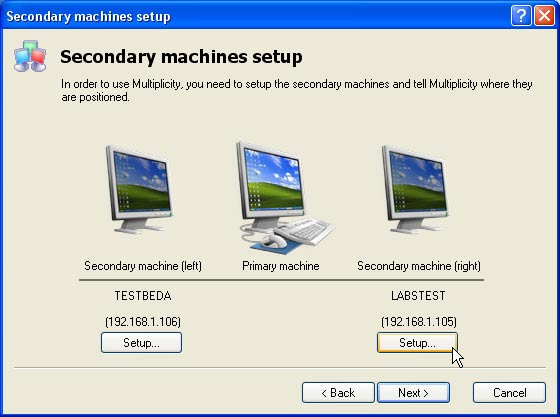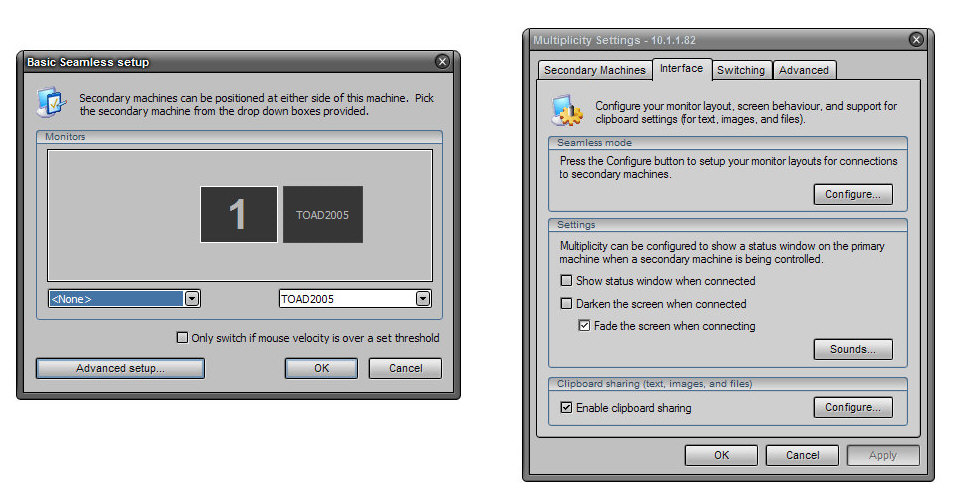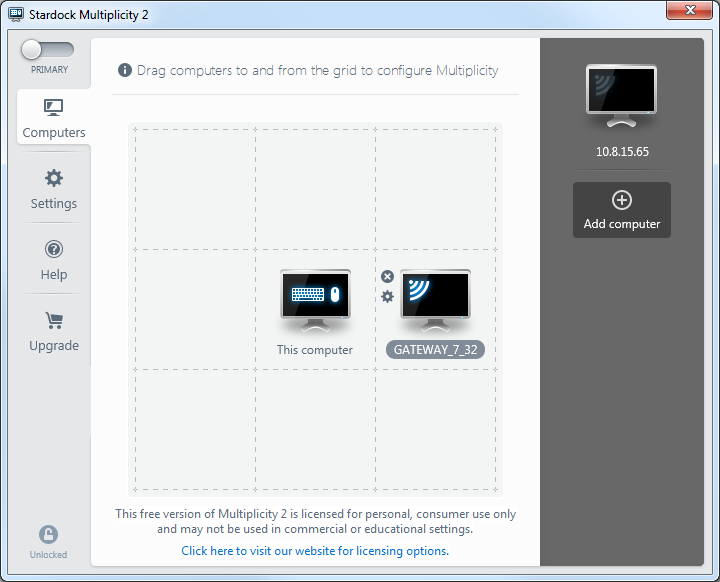Multiplicity History: Difference between revisions
Island Dog (talk | contribs) No edit summary |
Island Dog (talk | contribs) m (→2012) |
||
| Line 16: | Line 16: | ||
===2012=== | ===2012=== | ||
Multiplicity has had several updates to the 1.x versions leading up to the next major release of Multiplicity 2.0. New in v2.0 was the ability to send keyboard input to all computers simultaneously, data transfer with no file size limitations, AES-256 encryption, and centralization of multiple PC audio to one set of PC speakers. | Multiplicity has had several updates to the 1.x versions leading up to the next major release of Multiplicity 2.0. | ||
New in v2.0 was the ability to send keyboard input to all computers simultaneously, data transfer with no file size limitations, AES-256 encryption, and centralization of multiple PC audio to one set of PC speakers. | |||
Multiplicity 2.0 was introduced with a free version limited to controlling 2 PCs, and a paid upgrade allowing up to 9 PCs along with other features. | Multiplicity 2.0 was introduced with a free version limited to controlling 2 PCs, and a paid upgrade allowing up to 9 PCs along with other features. | ||
Revision as of 15:39, 29 October 2020
2005
Multiplicity 1.0 is first released in February of 2005. Multiplicity is a program that enables users to control multiple local computers with a single keyboard and mouse.
Multiplicity works by having a primary computer with a keyboard, mouse and monitor connected to it and multiple local secondary computers that still have a monitor connected to them but no keyboard or mouse. When the user moves their mouse cursor from the primary computer to one of the monitors connected to a secondary computer, the user is then controlling that secondary computer. Multiplicity then ties them all together with a single universal clipboard enabling the user to seamlessly work with multiple computers at the same time. Multiplicity talks to the other computers through the user's network connection.
Multiplicity came in a standard and pro version with additional features.
2006
Version 1.1 of Multiplicity was released and it added support for the new Windows Vista releases, and support for monitor placement above and below the primary machine.
2012
Multiplicity has had several updates to the 1.x versions leading up to the next major release of Multiplicity 2.0.
New in v2.0 was the ability to send keyboard input to all computers simultaneously, data transfer with no file size limitations, AES-256 encryption, and centralization of multiple PC audio to one set of PC speakers.
Multiplicity 2.0 was introduced with a free version limited to controlling 2 PCs, and a paid upgrade allowing up to 9 PCs along with other features.
Multiplicity was also included in PC World's "100 Best Products of 2012".


